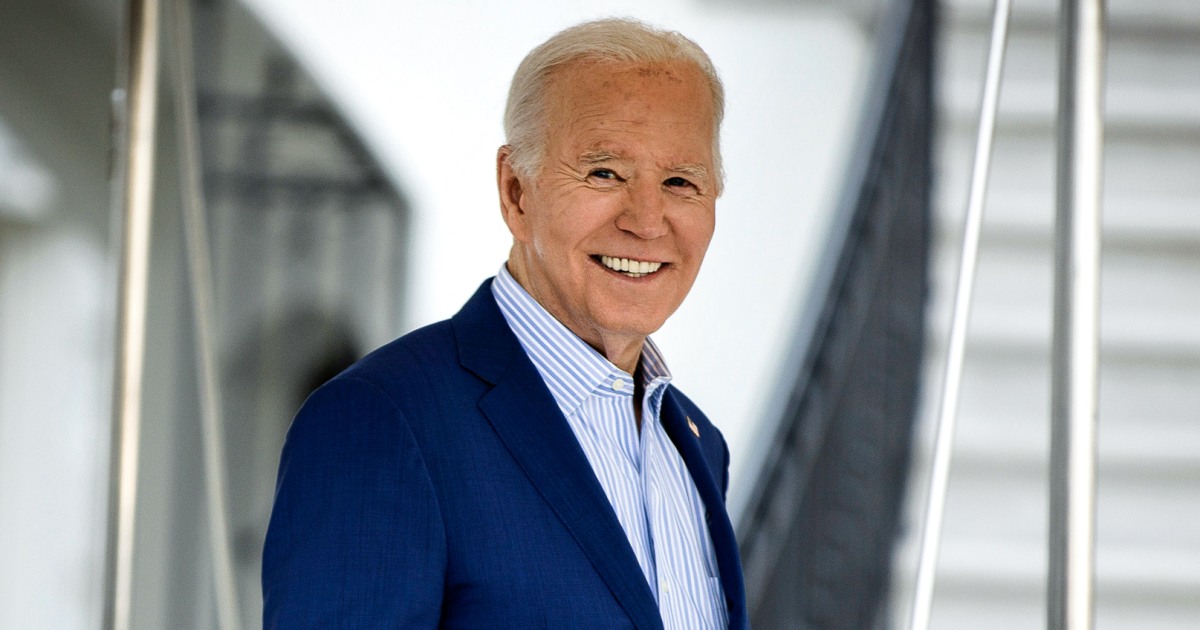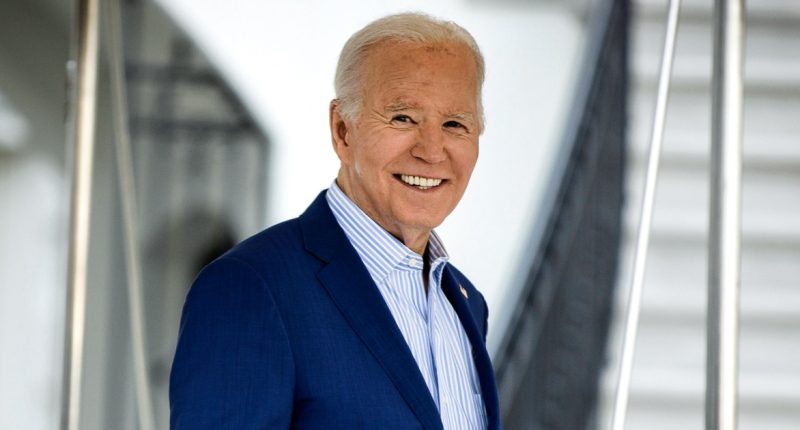
Joe Biden’s glide path to the Democratic presidential nomination begins Saturday as South Carolina, the state that rescued his struggling campaign four years ago, kicks off the party’s official primary season.
Biden stands as the overwhelming favorite to win the South Carolina primary against comparatively weak opposition: U.S. Rep. Dean Phillips of Minnesota and Marianne Williamson, an author who ran unsuccessfully in 2020. Early voting in the state began on Jan. 22. Polls close 7 p.m. ET on Saturday.
Apart from the fundraising advantages that flow from incumbency, Biden is the favorite of South Carolina’s Democratic establishment, notably Rep. James Clyburn, a power in Congress and a leader in the Black community.
Biden won the New Hampshire primary last month, but the result is largely symbolic. In drawing up the official primary calendar, Democratic officials put South Carolina first. New Hampshire jumped the line against the party’s wishes and, as a consequence, its delegates may not count in the final tally.
Biden hopes to win South Carolina by a whopping margin, which might infuse his candidacy with more energy and help deflect attention from his low standing in public opinion polls. He made repeated visits to South Carolina in the run-up to the election, including a stop last month at the church in Charleston where a white supremacist murdered nine worshippers in 2015.
Black voters account for a majority of South Carolina’s Democratic electorate. In campaign speeches, Biden has been highlighting his efforts to improve their lives, mentioning his administration’s aid to historically Black colleges and programs to erase student loan debt.
He scarcely mentions his primary opponents, focusing instead on former President Donald Trump, the favorite to win the GOP nomination.
Speaking at a recent campaign dinner in Columbia, Biden said, “You’re the reason Donald Trump is a defeated former president. You’re the reason Donald Trump is a loser. And you’re the reason we’re going to win and beat him again.”
Gratitude between the president and South Carolina runs both ways. Biden’s 2020 campaign was on the verge of unraveling ahead of South Carolina’s primary that February. He had lost badly in the two preceding contests in Iowa and New Hampshire. Buoyed by Clyburn’s endorsement, he won the primary, regained momentum and began his march to the nomination.
South Carolinians, in turn, may feel they owe Biden for using his clout as party leader to let the state hold the nation’s first official contest.
Historically, Iowa and New Hampshire had gone first and second, respectively. But the Democratic National Committee voted last year to vault South Carolina to the front of the pack, citing the state’s racial diversity as opposed to Iowa and New Hampshire’s more predominately white voting population.
“No other president ever, ever even thought about moving Iowa and New Hampshire back — until this president did,” Jamie Harrison, chairman of the Democratic National Committee who is from South Carolina, said at a recent party event in Spartanburg. “Because he saw the value that South Carolina had for him and he understands how important this state and the people in this state are to the Democratic Party.”
Reluctant to cede its pole position, New Hampshire held a contest last month all the same. Biden was not on the ballot and did not campaign in the state, but he won nonetheless in a write-in vote.
A total of 55 delegates are at stake Saturday in South Carolina. The delegates will be awarded proportionally based on the outcome. A candidate needs a total of nearly 2,000 delegates to capture the Democratic nomination.
Biden’s support for Israel in its war with Hamas has emerged as a new vulnerability in his re-election bid. Some younger voters, in particular, fault Biden for sending aid to Israel as its military pounds Gaza, killing thousands of civilians.
“He’s given us a reason not to vote for him,” said Tierra Albert, 19, a student at Claflin University, a historically Black school in Orangeburg.
Given Biden’s daunting lead, the more intriguing drama in South Carolina happens on Feb. 24 when Trump and Nikki Haley square off in the state’s GOP primary. Under South Carolina’s open primary system, Democrats are free to vote in the Republican primary (they are barred from voting in both, however).
That dynamic has fueled speculation that some Democrats might cross over and vote in the Republican primary for the singular purpose of helping Haley — a former South Carolina governor — and slowing Trump’s march to the nomination.
Yet there are crosscutting pressures at work. South Carolina Democrats want a huge turnout to justify the party’s decision to bump the state to the front of the line. A poor turnout could reopen the debate about which state should go first in 2028 and thereafter.
As he cast an early vote last month in the state’s primary, Clyburn told election workers that he hoped they were busy throughout the day, meaning that Democratic voters would show up in force for Biden.
Afterward, he held a news conference and NBC News asked about the possibility that Democrats might sit out the Democratic primary and instead cast votes for Haley in the upcoming GOP contest.
“I hear about it a lot,” he said of that strategic ploy. “I’ve never endorsed it, and I don’t think it ever works.”
Source: | This article originally belongs to Nbcnews.com









